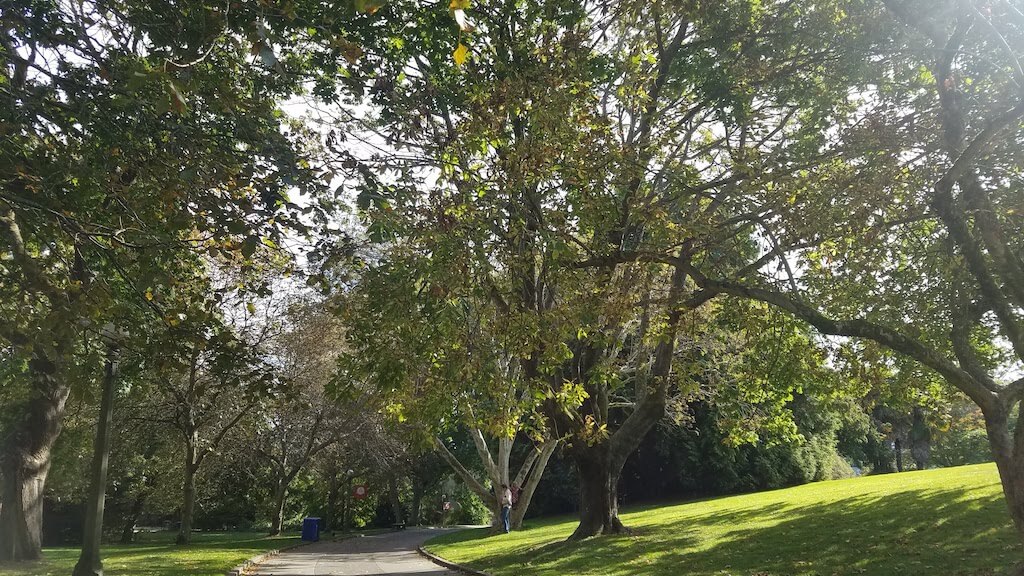After a 24-hour hackathon last weekend, my body feels out of whack. I’m staying up late, have a hard time focusing, and waste hours playing an addictive game on my phone.
I’ve run hackathons before. This year was great because I got to take on a supportive role to a friend from Microsoft who led it.
So why do I feel burnt out?
Simultaneous to running the hackathon, my company launched a campaign called Project Pentecost. One of our promises is a powerful video in many languages that churches can play on Pentecost to cast vision for diversity in the church that reflects the Kingdom of God.
(sign up to get it when it launches :-))
We were filming across the hall from the hackathon.
Turns out that pulling together fluent speakers of 10 languages in one place to shoot a high quality video is very stressful! Aside from calling in tons of favors, there’s the pressure of promoting what we’re doing so it gets widely used.
So what does this have to do with “Diversifying your dopamine portfolio”?
Sleeping in and vegging hasn’t help me recover. Here’s what I’m trying instead.
Recovering from Burn Out
Dopamine is a neurotransmitter that gives us pleasure. All the networking, pitches, filming, outreach and connections this weekend probably overloaded my neuroreceptors.
(Disclaimer: I’m not a doctor–these ideas are inspired by a conversation with my brother-in-law who is one, but errors & oversimplifications are my own).
Some of us have a lower baseline that makes us more susceptible to addictive or obsessive behavior because a single pleasurable experience can cause a spike that we crave again and again.
A person with a higher baseline of dopamine receives a pleasurable experience as a good thing to be enjoyed, but continues to feel positive even when the stimulus is gone.
This got me thinking: I need to diversify my dopamine portfolio.
If I’m couped up in front of a computer (or my phone, which is a highly optimized “dopamine delivery mechanism”!) doing mentally/emotionally exhausting work, I only get four sources of “reward”:
- Achieving something at work
- Phone notifications (could be stressful too)
- Eating something tasty
- Watching TV or a movie at the end of the day
The latter two feel more like coping mechanisms than actual refreshment. Thus, I’m more at risk for addictive behavior like endlessly scrolling through Facebook, mindlessly watching YouTube videos, or constantly checking my inbox.
The Alternative
If on the other hand, I do a 15 minute workout, eat good food, put in a few hours of focused work that delivers a result, connect with a friend, go for a run, practice violin, read a book and play a game with friends, I have so many varied sources of dopamine that my risk of addictive or obsessive behavior is drastically reduced.
Even if I have a bad day in a few areas, there are other sources of enjoyment to counteract them. And a single spike of euphoria is less destabilizing.
Diversifying your dopamine portfolio results in greater emotional resilience.
Learning to Rest
In school, I was focused on optimizing one metric: Grade Point Average. It sort of worked, but resulted in a very stressful and narrow life. It also produced addictive behaviors.
Now, I’m increasingly appreciating the significance of rest or “sabbath” as well as the value of the liberal arts.
Liberal Arts
First, the liberal arts promote the love of learning and a breadth of experiences as an essential part of what it means to be human.
This includes creating and consuming great literature, art, dance, sports, music and the great diversity of creativity that falls under the heading of “the humanities”.
It asks the timeless philosophical questions of “What really matters in life?” and “Why?”
And it promotes intellectual humility and curiosity about how life works in everything from quantum physics and astronomy to sociology and religion.
The liberal arts help us diversify our dopamine portfolios as we seek to experience the fullness of what it means to be human.
Pro-tip: it’s not just maximizing a metric like money or GPA ;-).
Sabbath
Second, the biblical command to rest on the Sabbath can be interpreted as wisdom from the Creator who uniquely wired human bodies with neurotransmitters to give pleasure not from one main activity, but from a vast array of experiences that let us fully live into what God made us to be.
These feedback loops can be hijacked, corrupted and compromised, but in their original design it’s so brilliant that we have a carefully designed mechanism for reinforcement learning (to use the term from AI research), which helps us learn what it means to be made in God’s image, what it means to be human.
God gives six days for people to work and enjoy the pleasures of achievement, provision, growth, mastery and the like. And on the seventh day, God set aside time for people to enjoy the fruits of their labor, to enjoy Creation and to enjoy God.
It’s a day to rewire our dopamine feedback loops so we can experience ALL of what it means to be human, not just the work part.
It’s a day for our souls to unfold after being worn down by the toils and hardships of the week.
We get to remember that our worth goes beyond our productivity, success and contribution to society–we get to rest and enjoy life because we’re made in the image of a God who rests and enjoys.

Leave a Reply